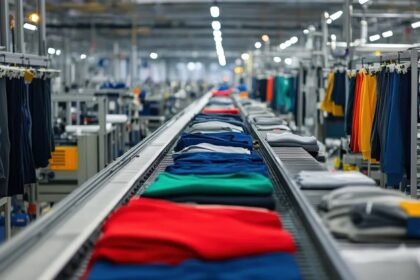A major report released this week highlights a stark omission in global fashion brands’ climate strategies: garment workers in developing countries are largely absent from their transition plans, raising serious questions about equity and accountability.
The Fashion Revolution report, What Fuels Fashion?, reviewed disclosures from 250 leading fashion and apparel brands. It found 86% lack public coal phase‑out targets, 94% do not disclose renewable energy procurement plans, and only 3% have any financial assistance scheme for supply‑chain workers impacted by climate change.
The document makes clear that brands are asking suppliers and workers—many operating on razor‑thin margins—to shoulder the costs of decarbonisation.
Meanwhile, a study by Cornell University’s Global Labor Institute and Schroders forecasts that extreme weather events could cost Bangladesh, Cambodia, Pakistan, and Vietnam up to $65 billion in apparel exports by 2030, in addition to endangering workers’ health through heatwaves, floods, and factory closures.
In Cambodia, the Business & Human Rights Resource Centre reported that none of the 65 biggest fashion brands have standalone “just transition” policies addressing workers, and only two—Inditex and Kering—mention workers at all in their transition plans. Few companies offer financial back‑up for suppliers or worker training linked to green rewiring .
Experts warn that without a worker-inclusive approach, planned decarbonisation efforts risk being little more than climate greenwashing, leaving frontline factory workers vulnerable to job losses and health hazards in an industry already haunted by underpayment and exploitation .
Activists and labour groups are urging brands to adopt climate-responsive worker protections, such as parametric heat‑stress insurance and guaranteed living wages. Such schemes could buffer workers during extreme events like heatwaves, droughts, and floods
“Decarbonisation without workers as partners is not a just transition—it’s a dangerous shortcut,” said Natalie Swan, labour rights manager at the Business & Human Rights Resource Centre .
With upcoming regulations such as the EU’s Corporate Sustainability Due Diligence Directive and rising investor pressure, analysts say the industry is at a tipping point. Climate strategies that don’t integrate worker welfare and financial resilience risk undermining both human rights and business continuity.






